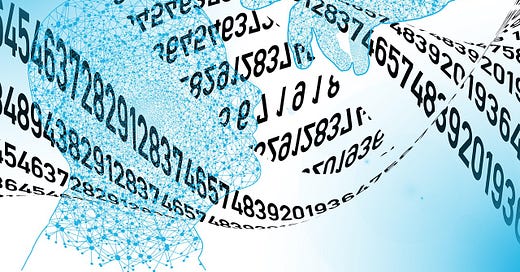In my last substack, I addressed both how Secretary Kennedy aims to find the cause of autism, and I defined different ways of looking at causality. I strongly encourage people to read that post. I am seeing a flurry of posts on social media saying “Genetics do not cause autism. I know because I tested my autistic child and they don’t have any genetic causes.” Also very authoritative posts saying “environment causes autism.” TLDR: Just because you can’t find a genetic cause for your child’s autism, doesn’t mean genes don’t cause autism in other children. And maybe, just maybe, the environment impacts the genetic cause. Let me go into more detail on all of that.
But before I do, I think a lot of this goes back to distrust for research. Please go back to one of my previous posts – not all researchers / scientists are unethical liars. I know because I’m one of them, and I work with others that are ethical. And to be perfectly frank, the medical freedom movement tends to throw all of science under the bus when some of it is honestly fine.
First, yes, genetics explain autism at least in some published cases. Before I go into more detail on that, I think it is important to explain the differences between “genetics” and “inheritance”. Inheritance refers to when a genetic variation is present in a parent, and then passed on to a child in that same form. If you ever learned about Punnet squares in school, that is a simple (overly simple) way of illustrating inheritance. However, not all genetic causes are inherited. Some occur de novo (new). Sometimes accidents happen in DNA replication, and then you find genetic variants in offspring that neither child has. We see that in autism, and other disorders as well. I have seen them in my own data (which I am not going to cite to retain my anonymity).
To save myself the trouble of digging out every autism study that I’ve ever read (because I study chromosomal genetic deletions in association with other disorders, I have in fact read much of this literature), I’m going to copy some text from the Wikipedia page on autism:
A series of studies have shown that gene disrupting de novo CNVs occur approximately four times more frequently in autism than in controls and contribute to approximately 5–10% of cases.[14][22][23][24] Based on these studies, there are predicted to be 130–234 autism-related CNV loci.[24]
A “CNV” is a copy number variant. Translation – this is when there is a number of copies of a gene variant different than 2 – in other words, a deletion or insertion of DNA. Most of these are deletions, huge ones. These are real, valid studies. If you continue to read further on that page, you’ll find more reports of those. These are massive chromosomal deletions. Their sheer size is what results in a severe clinical outcome. While there are a few of these CNVs that are present across multiple cases of autism, there are many unique CNVs.
I’m going to repeat myself. Just because autism can be explained by those genetic variants in those subjects in those genetic studies, not every case of autism in the entire world can be explained by these research studies. Some cases are not genetic. Honestly, the unsolved genetic cases are going to go unpublished. Negative data don’t get published. Furthermore, if your child’s genetic cause has not yet been discovered by a research study, and if you took your child for genetic testing, it is possible that your child does in fact have a genetic cause for autism but the databases haven’t recorded it as such because it hasn’t been discovered by anyone else. Clinical geneticists and genetic counselors are not necessarily linked to researchers.
BUT…
As Mr. Kennedy pointed out, genetics do not explain the autism epidemic, and I will explain why. Most of the causes I just described are de novo – new – mutations in DNA. Here’s the thing – DNA mutation rates do not change over time. It’s not like all of a sudden there is a generation where DNA is super fragile and breaking all the time. These mutational rates are not consistent with any genetic theory. I hypothesize that these higher rates of chromosomal breaks is due to some environmental factor (toxin, vaccine, who knows) that weakens the DNA, causing it to break.
Another possibility is that of gene-environment interaction. Think of this as a “double whammy”, except that you need both things to get the disorder. This is hard to prove. This would imply that there are people out there carrying these autism-causing mutations, but because they don’t have the other exposure (toxin, vaccine, whatever), they don’t manifest autism. In genetic studies, such situations would be filtered out. Translation – a scientist would observe a neurotypical kid with a massive chromosomal deletion. Well that makes no sense, so they don’t consider that data because it is inconsistent with the hypothesized genetic model? Dishonest? No. This is how genetic analysis works. If you remember Punnet squares and Mendel’s pea plants, if all his flowers were white, yellow, and green, and suddenly you had a purple one in there, he would count it an outlier and ignore it… though it might actually be due to a really rare unique cause.
Lastly, I’m seeing people on social media saying that autism is caused by “epigenetics”. I haven’t asked those people if they know what that word means. Epigenetics is NOT gene-environment interaction (even though sadly many years ago some scientists used that word that way). Epigenetics is when the expression of genes is influenced by the presence of methyl groups on DNA. Methyl groups are always present, what varies is the amount and location. Can the presence of methyl groups be affected by environmental factors - absolutely.
I’ll close by saying this is a rapid stream of consciousness post for me. This is something I’ve thought about for a long time because I work in this field (genetic epidemiology) and I’ve seen these actual chromosomal deletions in my data. I would LOVE LOVE LOVE to do a study to examine the gene-environment interaction hypothesis that I just posed. It would be expensive and frankly hard to fund since reviewers would be biased against such a hypothesis. (I’m open to quitting my day job and doing this actual research study if someone funds it, hint hint.)
Questions? Ask them in the comments below.
Edited to add… I just saw a social media comment where someone implied that the reason why treatments and resources don’t exist for kids with autism is “because it’s genetic”. Oh my goodness. The whole point of identifying genetic causes of disease is to develop better, perhaps personalized, treatments. If this is the reason that this area of clinical care has been neglected, then medicine has ignored the entire goal of genetic epidemiology.




